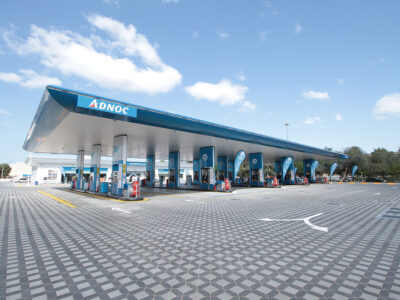UAE-based e-commerce website and retailer Desertcart has witnessed a threefold increase in business since the start of the year, boosted by the various curfews and lockdowns associated with the current Covid-19 global pandemic.
Founder Rahul Swaminathan, who launched the company in early 2014, revealed that month-on-month sales since the middle of March have shown “double-digit growth” across its markets in the UAE, the US, UK and India.
He told Arabian Business: “It was crazy. We’re not huge. We’re not Amazon or Noon, but even for our levels it was pretty high.”
He added: “We’re still growing pretty crazy. We’re definitely in double-digit growth, month-over-month.”
The company helps customers find international items and products that are not directly available in the region, specialising in shipping from the UAE, USA, UK, Turkey, India, Japan and China to destinations across the GCC.
 Desertcart founder Rahul Swaminathan
Desertcart founder Rahul Swaminathan
Swaminathan said: “Our model basically works on basically delivering stuff from abroad, so we ship in products from the US, the UK, India and wherever people need them from. We had a combination of our orders increasing on one hand, and then our logistics and supply chain on the other, because obviously all the international flights were shut down, it’s harder to get freight on planes, things like that.
“It was a tough balancing act. We had to get our whole logistics operations, everything, give it two or three looks over, look at our own facilities and see how we could get more capacity in those; try to make deals with different carriers, different airlines.”
The GCC e-commerce sector is forecast to reach a value of $50 billion by 2025, according to a report by Kearney Middle East.
The report predicts that e-commerce will become the main source of growth in the retail sector over the next five years. The report forecasts a larger acceleration in e-commerce between 2020 and 2022, at 20 percent CAGR, and 14 percent until 2025. Without Covid-19, the same growth was projected at 14 and 10 percent respectively.
Swaminathan admitted he feared the worst for traditional bricks-and-mortar retail.
He said: “What I think won’t go back is definitely the consumer behaviour. I think once they’ve shifted their behaviour to purchasing online, I think it’s very hard to change that, to go back to dressing up, taking out your car and going to a shopping mall, getting parking etc.
“It’s tough to say but it definitely looks like it. If you think about the whole concept of brick-and-mortar, I guess it makes sense for some very specific industries, like restaurants. That’s not really going to go away, people will still want to gather in a place for something to eat. Maybe there’s some boutique stores that you really want to go in.
“But honestly, I don’t see a world where people are still going outside to buy your groceries. It doesn’t make sense to do that whole song and dance every week and spend three hours doing your grocery shopping when you can do it in a click way.”






